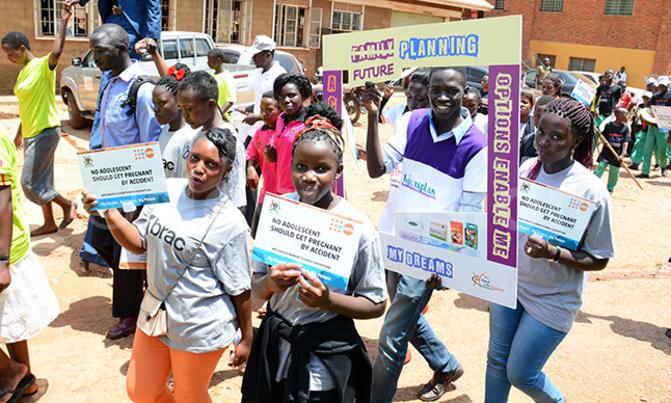Africa-Press – Uganda. HEALTH|FAMILY|PLANNING
Stakeholders have called for a multisectoral approach to address issues of Family Planning in the country.
Speaking during dissemination and learning high level meeting on family planning budget advocacy and accountability organised by Faith for Family Health Initiative (3FHi), participants recommended that Family Planning issues should not be left to the ministry of health but other sectors should be engaged.Uganda continues to reflect a low government investment in Family Planning infrastructure, leading to poor health outcomes among women and young people of reproductive age, limited provision of family planning services particularly long-term contraceptives methods in hard to reach communities and low coverage of friendly family planning services for adolescents, youth and women of reproductive age.The woman member of Parliament for Ntungamo Beatrice Rwakimari also member of 3FHi requested ministry of health to prioritise family planning and reproductive health.”When parliament approves money for family planning let it not be diverted to other areas of their prioritisation. The little that is allocated should be put to proper use to promote family planning and reproductive health services,” Rwakimari said.She called upon the Finance Ministry to increase the budget for family planning.The executive Chairperson Management and Board 3FHi, Jackie Katana said there is a need to engage decision makers beyond Members of Parliaments but also other ministries to advocate for family planning services.Uganda’s population in 2014 stood at 34.6 million people. The country’s population was growing at an average rate of 3% and the number of people per household was 4.7 on average according to Uganda’s National Population and Housing Census 2014. An estimated one million people are added to the population each year. The main driver of Uganda’s population growth is the high fertility rate that stands at 6.2, the highest in the East African Region.3FHi has piloted the family planning accountability model in Mityana and Kyenjojo districts with impressive results.The recent survey done by 3FHi, and which sought to track the linkage between Family Planning allocation disbursements and absorption found that there was a huge challenge in translating family planning allocations into actual service delivery. Analysis of the Family planning investment in Mityana and Kyenjojo, along the allocation disbursement-absorption continuum, revealed an interesting trend and pattern.In 2016 Mityana district was the first district to develop the District Costed Implementation Plan (DCIP) for family Planning while Kyenjojo followed in 2018. The adoption of the DCIP in the two districts was a clear indication that the two districts recognised the importance of investing in Family Planning.






